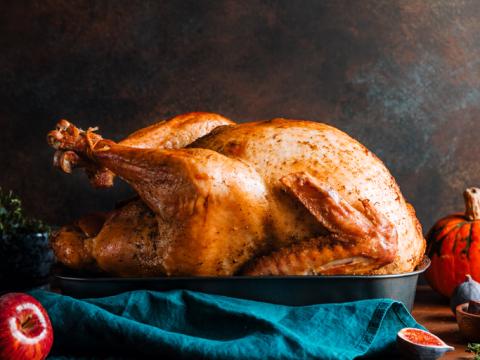ER Physicians Offer Thanksgiving Safety Tips
So, along with the steps we are taking to avoid COVID exposure, we should also heed the warnings of emergency room doctors, who see an uptick of patients on Thanksgiving Day every year. “A few simple steps can ensure that you spend Thanksgiving with your family and loved ones, not in the emergency department,” said Dr. Vidor Friedman, president of the American College of Emergency Physicians (ACEP). “Try to avoid doing too many things at once. Burns, fires or lacerations happen when you lose concentration, get careless with hot liquids or oils, or try to slice things too quickly.”
Did you know that when it comes to kitchen fires, Thanksgiving Day ranks No. 1? Dr. Friedman offers some tips to ensure that celebration isn’t replaced by conflagration.
Do:
- Make sure you have smoke alarms installed near the kitchen, bedrooms and on each level of the home. Test batteries and make sure that the devices are fully operational.
- Keep a fire extinguisher in your kitchen. Contact your local EMS department for tips on proper training and storage.
- While cooking, avoid wearing loose clothing or anything that dangles.
- Keep an eye on simmering pots, as well as items baking in the oven.
- Keep kids and pets away from cooking areas.
- Clean cooking areas regularly. Grease buildup is a health and safety hazard.
- Double check when you are done cooking that you have turned off the stove, oven or any appliances.
Don’t
- Do not throw water on a grease fire. The safest and fastest way to extinguish a grease fire is to remove oxygen from the flame. The best ways to do that are to smother it with a lid, another pot, or a blanket. If the fire is not severe, you can cover it with baking soda.
- Do not put a frozen turkey in the oven to defrost. Thaw and dry it first.
- Never deep fry a frozen turkey—it should be completely thawed out first. And frying a turkey should be done outside on a flat, non-flammable structure.
Fires aren’t the only unexpected hazard we might encounter on Thanksgiving Day. People with food allergies should take special care. If you didn’t prepare the meal itself, find out what’s in it. Avoid injuries while chopping and carving by giving these tasks your full attention.
Thanksgiving also is an occasion when we need to take special care to avoid food poisoning. “Wash your hands thoroughly when handling uncooked meat, and keep it separate from other foods,” ACEP experts say. “Sanitize any surface that touches raw food. The Centers for Disease Control and Prevention (CDC) recommends that oven temperatures should be no lower than 325°.” And even though you might be tempted to relax on the couch and take a nap after that last slice of pumpkin pie, be sure to refrigerate leftovers first, within two hours.
Choking is another hazard that’s more common on Thanksgiving, when we’re eating while socializing and laughing, or maybe taking oversized bites of the drumstick. “Chew slowly and carefully to avoid choking. Cut food into small pieces,” advises the ACEP. “If food gets stuck, don’t panic. Relax and take a drink of water. If you can’t breathe, bang on something, or do anything you can to get attention and get help. Have somebody call 911 while somebody else, preferably a person who is trained in emergency first aid such as the Heimlich maneuver, tries to dislodge the food.”
And one last warning: If alcoholic beverages are served at your gathering, practice moderation, and don’t drink and drive.
